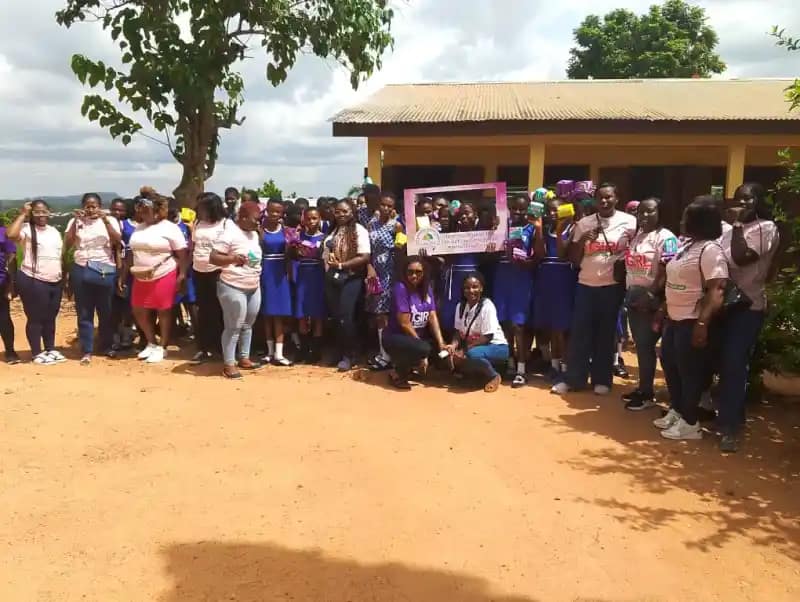News
50,000 Pads Donated to Support Schoolgirls’ Health on Menstrual Hygiene Day
Published
6 months agoon
By
M N Ridwan
In a powerful gesture to mark Menstrual Hygiene Day 2025, the Newmont Ahafo Development Foundation (NADeF) has donated 50,000 sanitary pads to 4,000 girls across 10 communities in the Ahafo region.
The initiative, supported by funding from the World Gold Council, aims to empower young girls and break the silence and stigma surrounding menstruation.
The beneficiaries, primarily basic school students from communities including Kenyasi No. 1 and 2, Ntotroso, Gyedu, Wamahinso, Adrobaa, Afirisikpakrom, Yamfo, Susuanso, and Terchire, each received three sets of sanitary pads and a sanitary bag.
Staff from NADeF and workers of Newmont Gold Limited led educational sessions in schools such as Kwakyekrom D/A Basic, Ntotroso Methodist Basic, and Islamic Basic Schools.
The focus was on personal hygiene, menstrual health education, debunking myths, and helping girls understand the physical and emotional changes that come with menstruation.

Menstrual Hygiene Day, celebrated annually on May 28, is a global call to action to end period stigma and improve access to safe menstrual care.
This year’s theme, “Together for a Period-Friendly World,” calls for collective efforts to ensure menstruation does not hinder access to education, health, or dignity.
Speaking at the event, Elizabeth Opoku Darko, Executive Secretary of NADeF, highlighted that the lack of menstrual care continues to contribute to high dropout rates among girls, particularly from Basic 4 through Junior High School 3.
“Many parents simply can’t afford pads, leaving their daughters at home during menstruation. This donation will help keep girls clean, confident, and hopeful,” she said.
She further emphasized that menstruation is natural and not a taboo. “We must work together—parents, teachers, and male partners—to ensure a safe and healthy space for girls to thrive.”
A grateful student, Blessing Oduro, thanked NADeF and Newmont, sharing that she and her peers learned vital hygiene practices such as bathing twice daily, changing pads regularly, and maintaining confidence during their cycle.
Since its establishment in 2008, NADeF has focused on community empowerment and sustainable development. This menstrual hygiene project is another step forward in ensuring that no girl is left behind simply because of her period.






